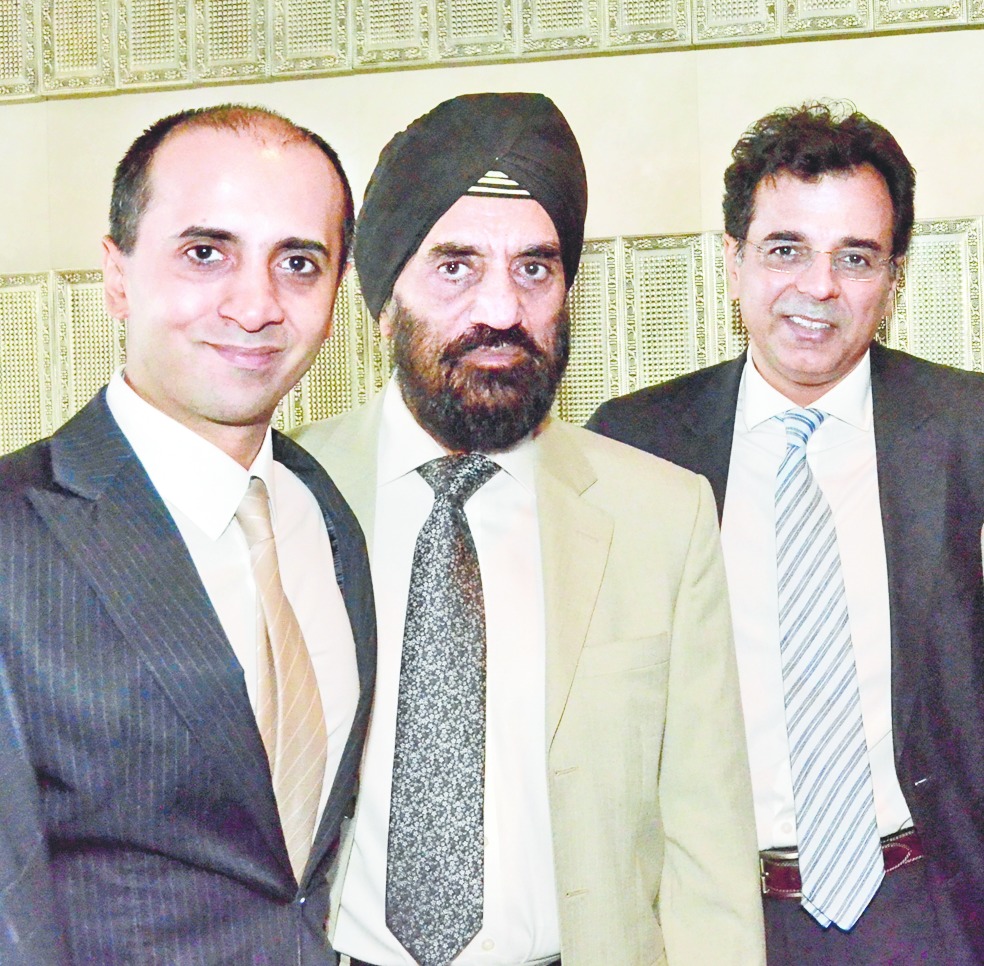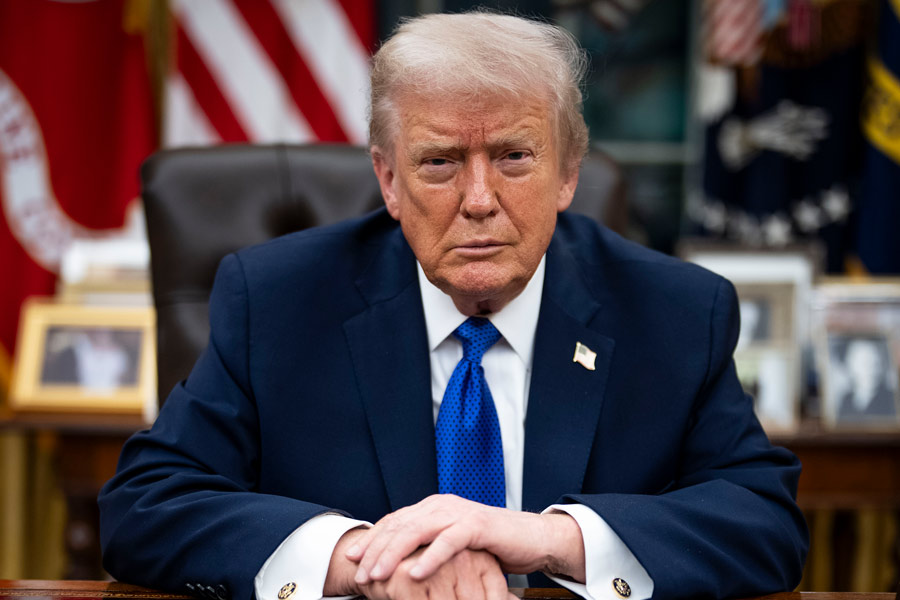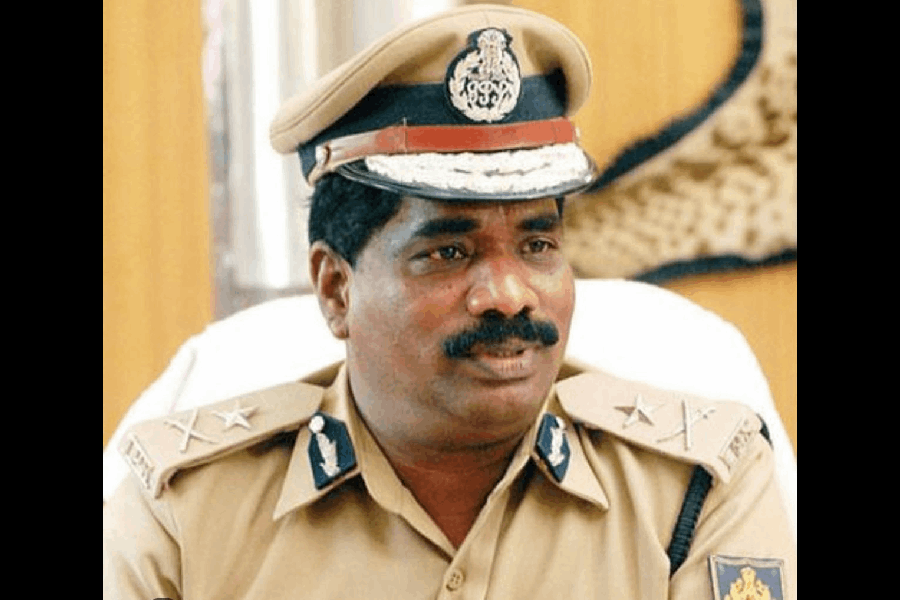The flip side of Shashi Tharoor

Shashi Tharoor got lots of pats on the back, including one from Narendra Modi, after making a debating point in the Oxford Union that Britain had been beastly to India during the time of the Raj and should now pay reparations.
I am sure that someone as clever as Tharoor could have argued the opposite case with equal eloquence. In fact, Kartar Lalvani is about to do just that.
Next year Bloomsbury will publish a book that has the working title, The Making of India: A Story of British Enterprise.
Lalvani, 83, the founder president of Vitabiotics, the "UK's No. 1 vitamins company", is a popular figure in the Indian community. He hosts many a party for visiting Indian dignitaries at Indali Lounge, his Indian restaurant in Baker Street.
Kartar's elder son, Ajit, 52, a world authority on tuberculosis and a professor at Imperial College London, and younger son, Tej, 41, are both on the board of Vitabiotics.
His brand ambassador is pace bowler James Anderson, who feels so "fantastic" after taking Kartar's pills that he ran through the Indian batting last year and the Aussies this summer.
Kartar tells me that it is "time to recognise the positive side of the Imperial coin. The indisputable fact is that India as a nation, as it stands today, was originally put together and created by a small, distant island nation. It is worth pausing to consider what India would be like today if the British had chosen to stay at home."
Kartar acknowledges not everyone will agree with him but nevertheless asserts: "My book is, I believe, the first to assess in a single volume almost all aspects of Britain's contribution in providing India with its lasting institutional and physical infrastructure which continues to underpin the world's largest democracy in the 21st century."
One has only to take a walk in Dalhousie Square or stroll past the Victoria Memorial to appreciate that perhaps Kartar has got a point.
He quotes Raja Rammohun Roy: "When we reflect on the advantages which we have derived and may hope to derive from our connection with Great Britain, we may be reconciled to the present state of things which promises permanent benefits to our posterity. Besides security from foreign invaders and internal plunderers, let us ask ourselves whether we could have rescued ourselves from the stigma of female murder (burning of widows) but for the English? Whether we could have otherwise obtained the power of equalising ourselves with the rulers of the country in regard not only to civil but to criminal jurisprudence?"
Admittedly, this was written before the Amritsar Massacre of 1919 and the resulting Independence movement.
Jamaican claim
Jamaica has now taken up the Tharoor refrain (see "The flip side of Shashi Tharoor"). David Cameron was in Jamaica last week where islanders demanded that the British pay Jamaica reparations for engaging in the slave trade.
The British Prime Minister was greeted with "Reparations Now" placards but told the Jamaican Parliament "No" in a polite way: "I do hope that, as friends who have gone thr-ough so much together since those darkest of times, we can move on from this painful legacy and continue to build for the future."
If this goes on where will it all end?
Since the sun never set on the British empire, the list of potential claimants could be very long.
Lord vs David
The new issue of Private Eye is a collector's item. There are pages and pages devoted to the scurrilous claims made against David Cameron, some of an intrusive personal nature, by Lord Ashcroft, a wealthy businessman.
He gave the party £8m but did not get a top job that Cameron had apparently promised. He has taken revenge with his unauthorised biography of the PM, Call Me Dave .
Private Eye , which has savaged Ashcroft, has a cover story, Revenge of Lord Ashcroft, with a photograph of the two former friends side by side.
Ashcroft: "Do you admit to a disgusting act?" (a reference to an alleged youthful indiscretion that has been dubbed "Piggate" by tabloid newspapers).
Cameron: "Yes, I took your money."
Fake Sheikh

The journalist Mazher Mahmood is often called the "Fake Sheikh" because of his penchant for donning Arab cloaks, taking a suite at a five-star hotel and conning gullible or greedy folk, including members of the royal family, into either saying something indiscreet or engaging in a criminal act.
It is alleged that Mazher then gets a scoop by reporting on the victims who have fallen prey to his sting operation.
Personally I am not much enamoured of this form of journalism but Mazher, at 52, is a master of the genre - he was the one who managed to secure prison terms for the three Pakistani cricketers convicted of spot-fixing.
But he appears to have been undone in a case involving the pop singer Tulisa Contostavlos and whether or not she had agreed to supply cocaine.
Mazher was charged last week by the Crown Prosecution Service with "perverting the course of justice". It has decided that it is in the public interest to charge both Mazher and his driver, Alan Smith, 66.
Mazher has also been suspended by his newspaper, The Sun on Sunday. But his glory days were at the News of the World before Rupert Murdoch shut down the paper.
He could receive a custodial sentence if found guilty.
I have had cause to mention this before but when Mazher and I were colleagues at The Sunday Times, he once told me that it was seeing my byline that encouraged him to try journalism. I knew it was all my fault.
Paul in school

At St. Xavier's School, Patna, if we had been asked, "Who is Swraj Paul?", there would have been a forest of hands.
And the witty answer: "Please Faa (short for Father), he was named after the business school at Wolverhampton University."
Alas, our jokes have not got better with the years.
Last week I did go to Wolverhampton University where Lord Swraj Paul officiated at the graduation ceremony in his capacity as chancellor.
The university has received a £1m gift from him - and responded generously.
"I am especially honoured that the university has chosen to acknowledge my own commitment to the university and to the Black Country by naming the new £18m business school after me," said Swraj.
"And the special links between my family and the university have been recognised and honoured through the naming of the students' union and learning centre as the Ambika Paul building (after his late daughter)," he continued. "I thank you all very much."
Swraj hopes next to conclude various business deals agreed with Mamata Banerjee when she dropped in to see him for tea.
Tittle tattle

What next for Tamal Kumar Ray?
Whatever happens next, the 29-year-old "heart-throb" Bengali boy did well enough last Wednesday in the Great British Bake Off to get into this week's final, where he is up against the favourite, hijab-wearing Bangladeshi Nadiya Hussain, and Ian Cumming.
By coming out last week as gay, Tamal has, if anything, boosted his future career prospects in modern Britain.










